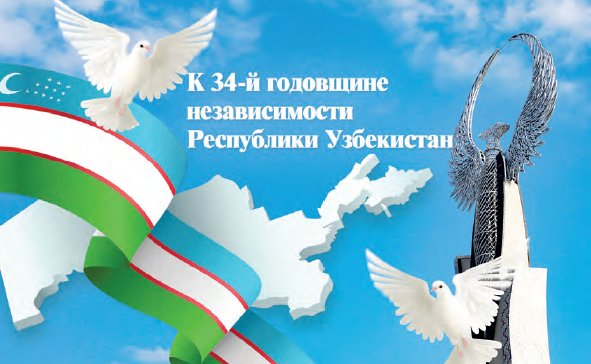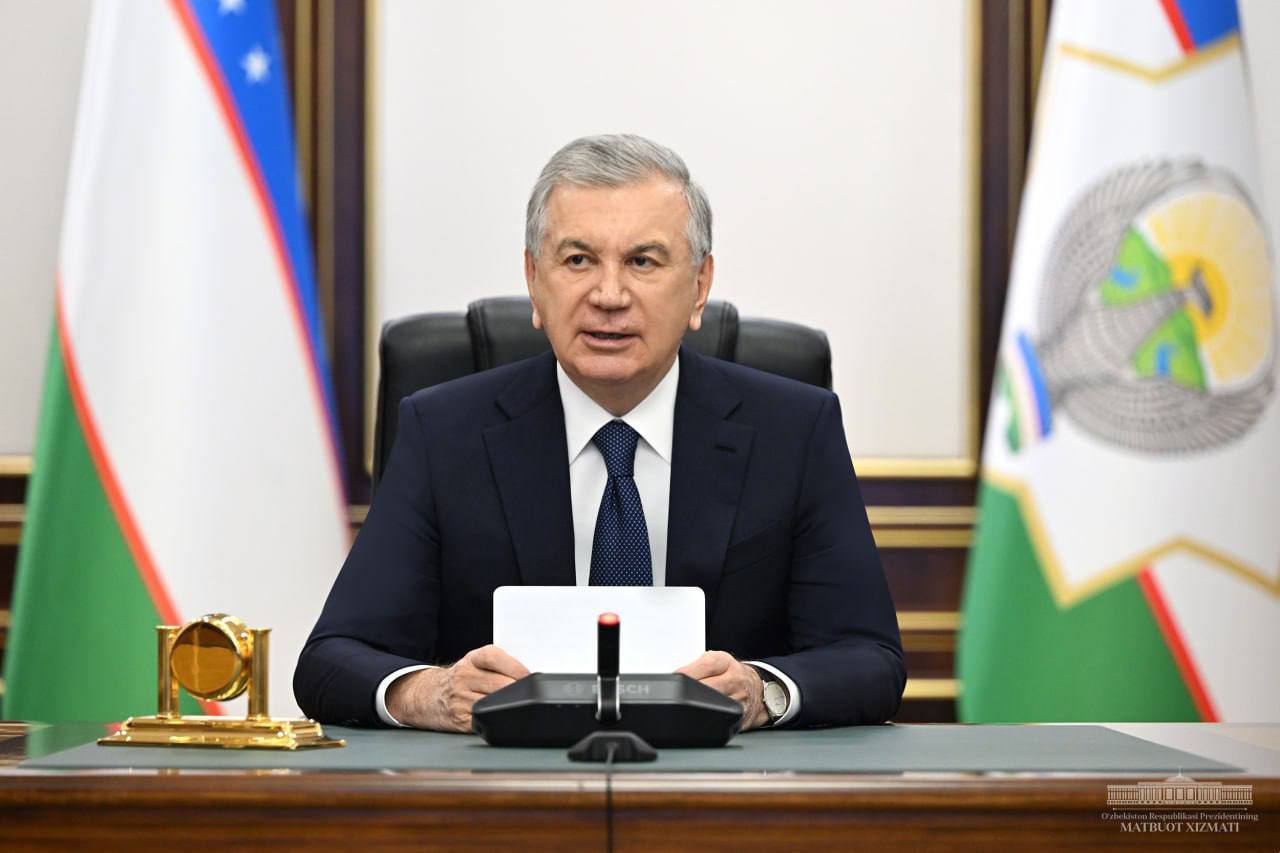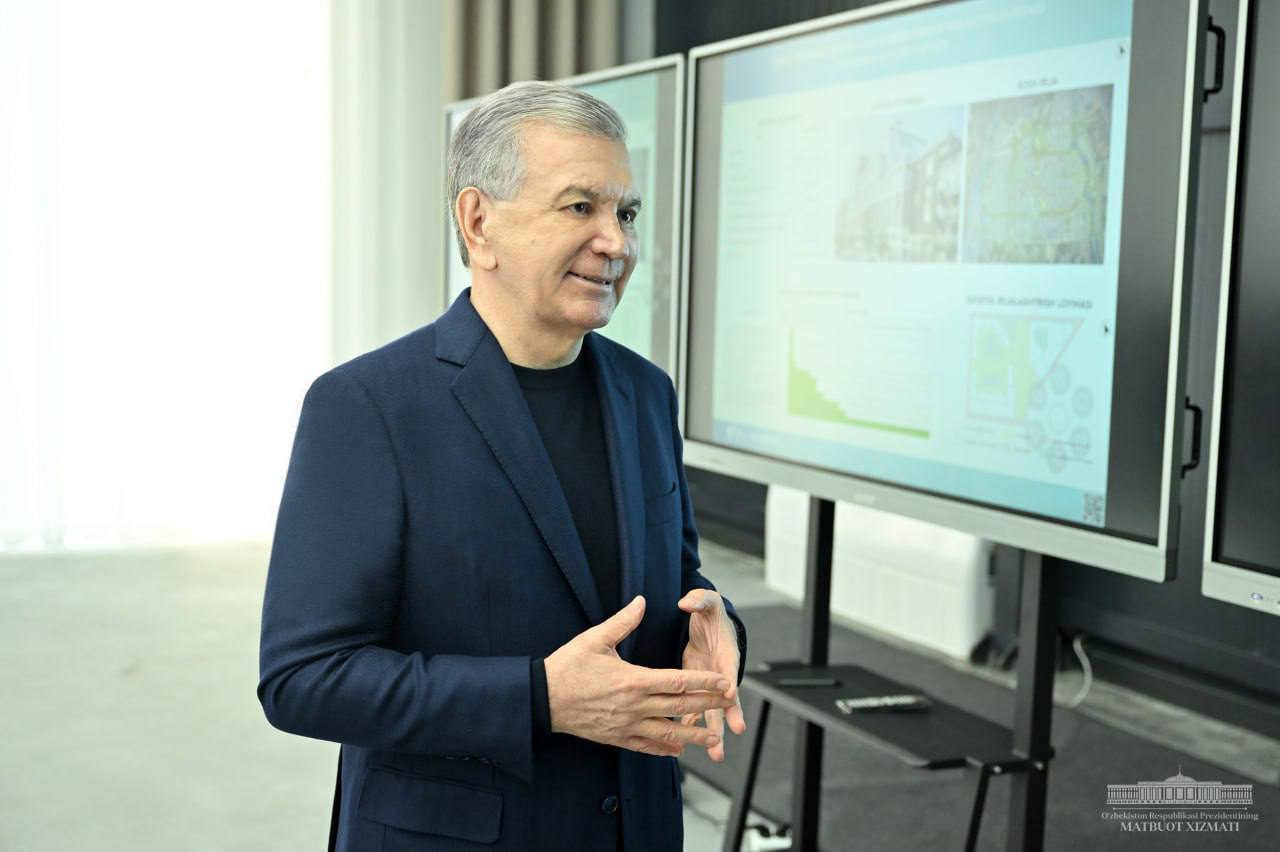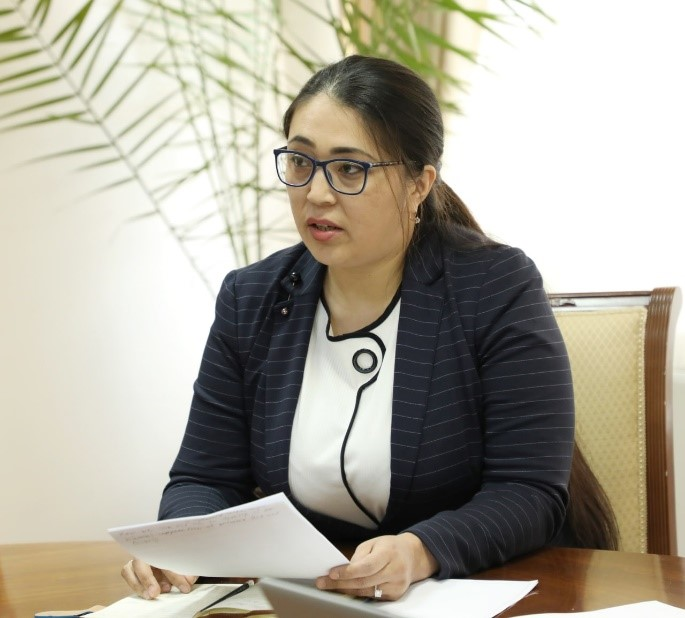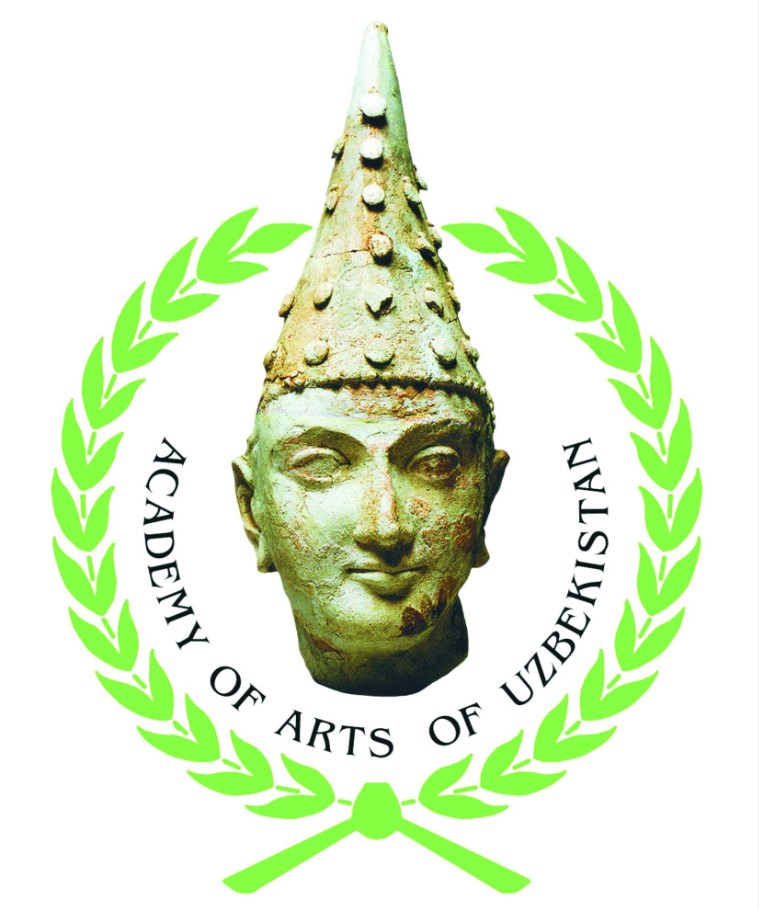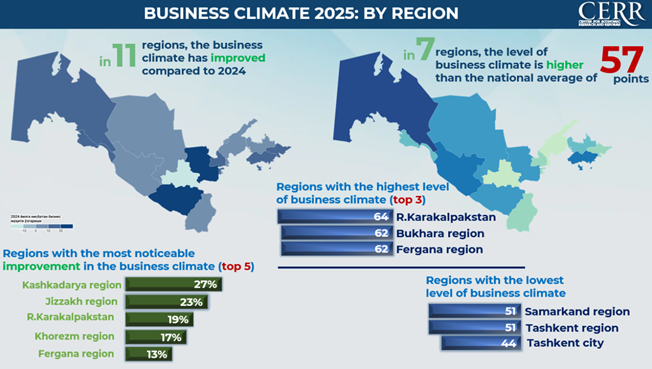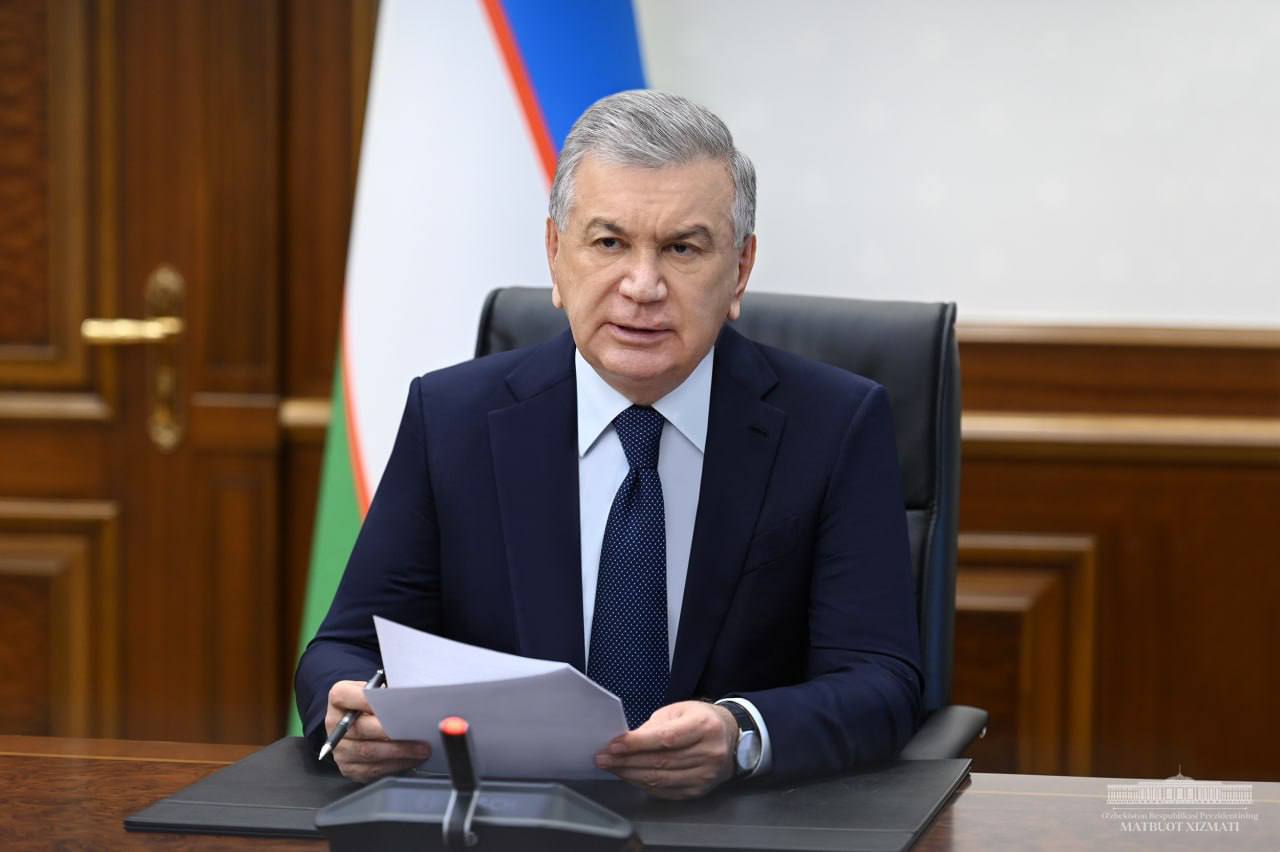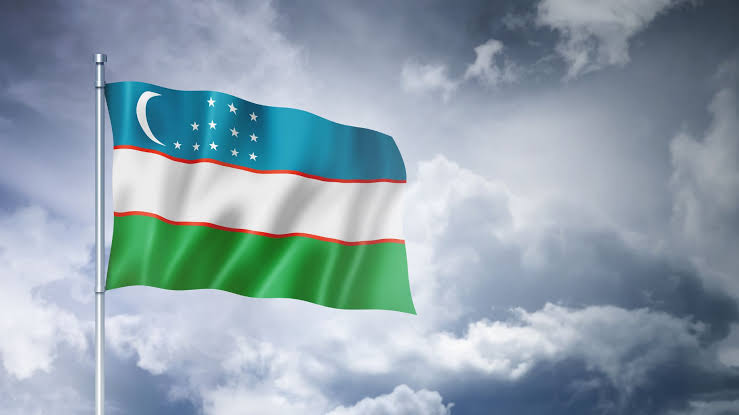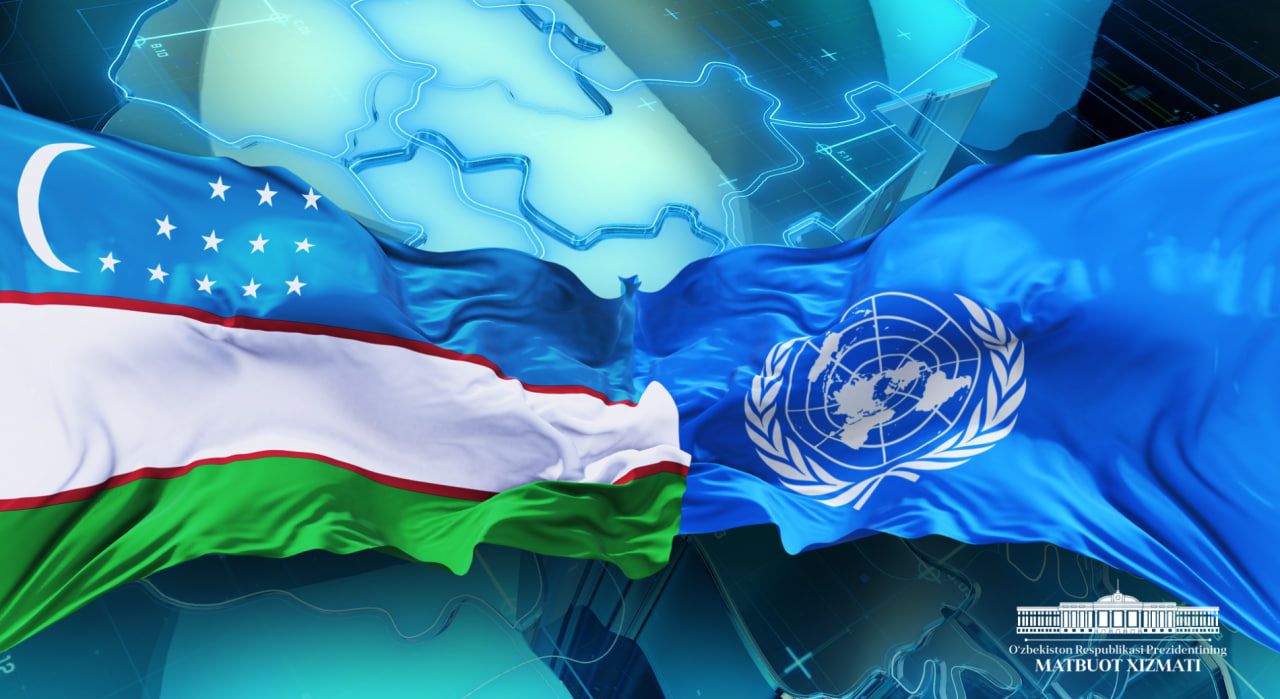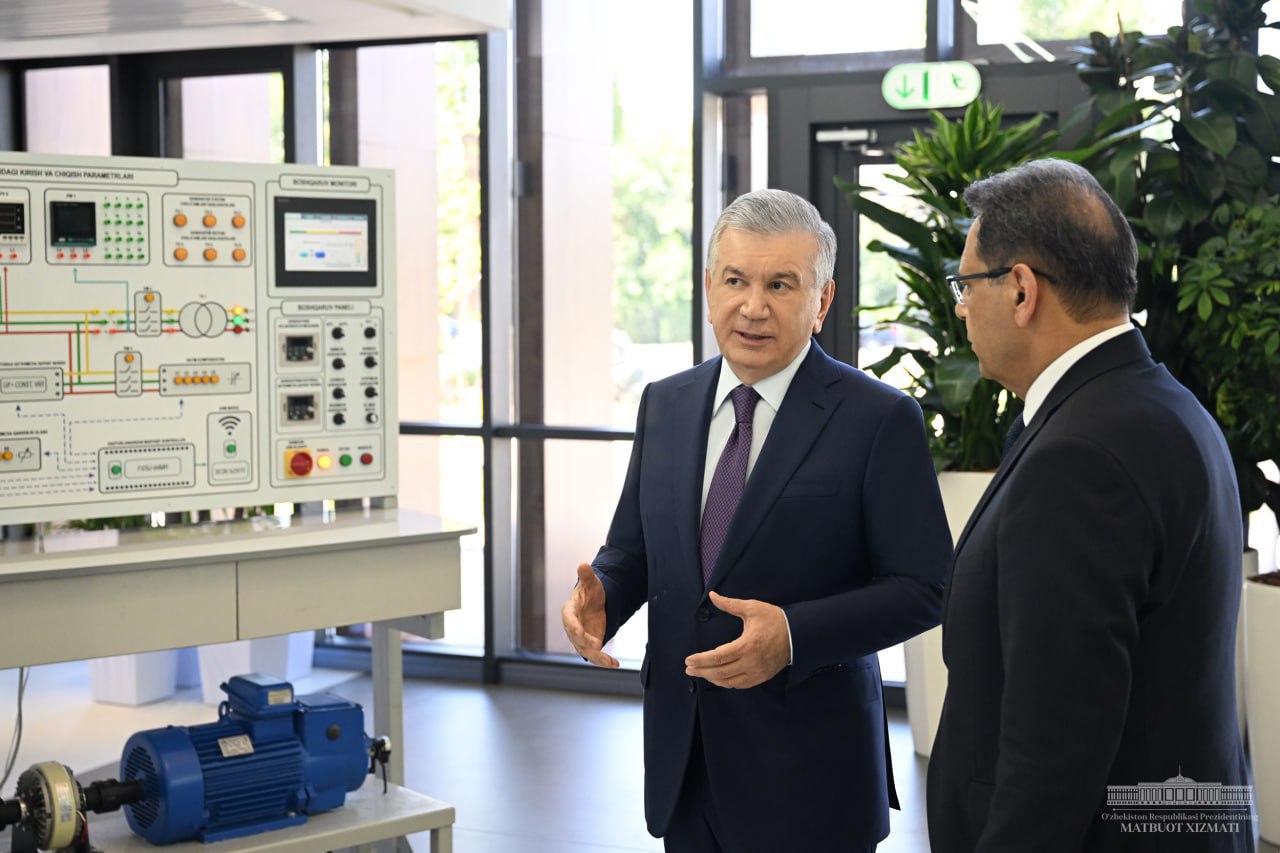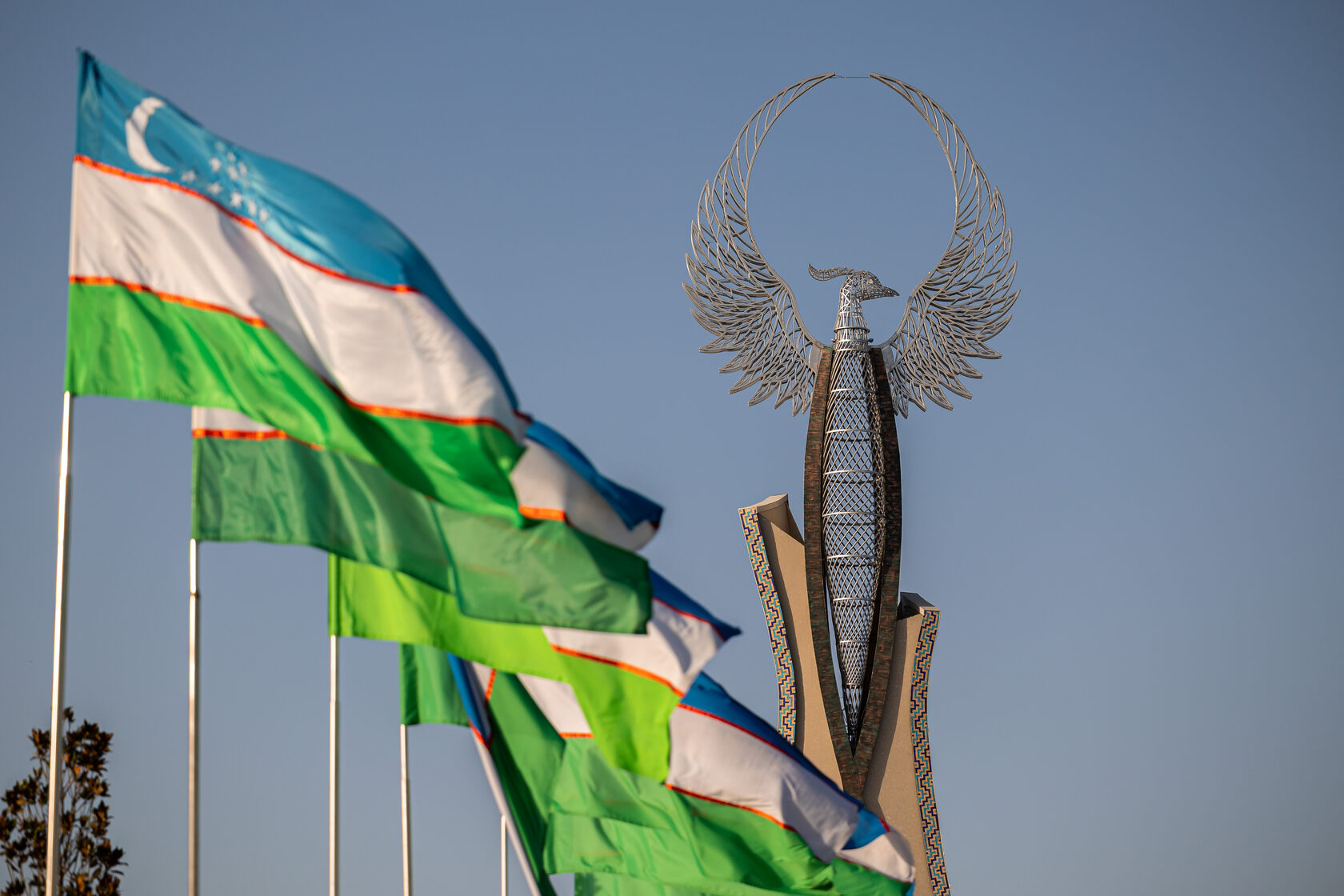Phone
Consular Issues
Phone
Uzbekistan news
We recommend
Over the past 8 years, New Uzbekistan has absorbed over 113 billion dollars of foreign investments
📅 18.08.2025
On the eve of the 34th anniversary of our country's independence, the Executive Board of the International Monetary Fund has finalised the 2025 consultations in accordance with Article IV of the IMF Agreement. The main conclusion on the essence of the ongoing reforms is positive prospects for Uzbekistan's economic development against the backdrop of continued progress in the transition to a market economy. According to the published document, economic indicators remain strong, including sustainable growth rates, reduction of the consolidated budget deficit, current account deficit and sufficient level of international reserves.
Successful and effective implementation of structural reforms, according to the Fund's specialists, allows us to conclude that the prospects are favourable. Against the background of a high degree of uncertainty in global trade policy, the IMF baseline scenario predicts that real GDP growth will remain stably high in the coming years. Such trends are the result of economic openness, industrialisation, active investment policy and support for the formation of export potential of promising industries.
The set of reforms and effectively implemented decisions is consistent with available internal resources and reserves for long-term sustainable development of the country and regions. The course towards irreversible market transformations makes it possible to skilfully combine the instruments of targeted state support and opportunities for entrepreneurial initiative on the way to building a New Uzbekistan.
In recent years, as a result of openness and growing confidence in our country, there has been a progressive increase in capital investment. In 2017-2024, the total volume of foreign investment absorbed exceeded $113 billion. Foreign direct investment and loans account for more than 80 per cent of them. Activity in attracting finance is observed in the leading industries and the fuel and energy complex, which has a corresponding impact on the acceleration of industrialisation processes in almost all regions.
Increasing investment cooperation with China, Russia, Germany, Turkey, Saudi Arabia, the Netherlands, the USA, the UK and other countries is becoming a source of attraction of advanced technological solutions and expertise, management methods, localisation of production and strengthening the export potential of promising industries and regions of Uzbekistan. Attracted resources are mainly invested in the technological re-equipment and modernisation of existing production facilities and the creation of new production facilities that did not exist before.
Over the past eight years, investment programmes have launched more than 96,000 projects worth about $100 billion, creating 1.8 million jobs. In 2024, compared to 2017, the value of investment projects put into operation increased almost eightfold, and the number of jobs grew 2.6 times.
We emphasise the factor of active involvement of our Head of State in this process. As a result of visits and top-level events, 366 investment agreements worth $75 billion have been reached since the beginning of this year. In particular, this year road maps have been approved for 222 investment projects worth about $45 billion.
Within the framework of the IV Tashkent International Investment Forum (June this year), agreements were reached on investments worth more than $30 billion (for the implementation of 144 joint projects). In April 2025, on the margins of the 5th International Industrial Exhibition "INNOPROM. Central Asia", held in Tashkent, within the framework of the 43 investment agreements reached, it is planned to attract an additional billion dollars to the industrial sector of the country.
In recent years, there has been an active practice of holding events to inform the international community about opportunities for the implementation of joint projects. Thus, this year, forums were held in 13 foreign countries as part of the Investors' Day of Uzbekistan, attended by representatives of 700 well-known foreign companies. More than 200 investment projects worth six billion dollars were presented to potential partners.
Among the important elements of Uzbekistan's modern industrial policy is localisation of production of high quality and competitive products, reduction of imports of finished goods and components. In accordance with the Localisation Programme, which included about 10 thousand projects, almost 300 trillion soums worth of products have been produced over the period 2020-2024. This led to import substitution in the amount of about $25 billion. The Localisation Programme allowed the creation of new production facilities for previously imported goods, contributed to changing the sectoral structure of industry and reducing dependence on external supplies by expanding the range of products and services.
THE NUMBER OF EXPORTERS IS GROWING
The formation of an export orientation has become one of the main conditions for success in implementing the plans outlined for Uzbekistan's industrialisation. Over 2017-2024, the total volume of exports exceeded $132 billion. It is noteworthy that the average annual growth rate of the country's exports over the period was 12-23 per cent. As a result of systematic and targeted support for exporters, the geography of exports of domestic products expanded by 55 states in 2024 and reached 186 countries over the past eight years. Last year, the number of exporting enterprises increased by 3,143 and their total number totalled 7,343.
Only due to the increase in the share of exports of higher value-added products in 2024, shipments to foreign markets increased by a billion dollars. Entering new promising markets, in turn, requires a significant improvement in the quality of manufactured products and their compliance with international standards. As part of the GSP+ programme, we implemented a set of organisational and technical measures to obtain Global G.A.P., Organic, OEKO-Tex, BSCI, CE marking certificates for our products and transition to ISO standards at more than five thousand enterprises. This made it possible last year alone to provide additional exports of 617 types of products worth $1.4 billion to the European Union.
Transition to more demanding standards and technological processes makes it possible to achieve the goals of producing and selling products of a completely different quality in new markets. Export supplies of goods to developed countries confirm the correctness of the chosen strategy, demonstrating its undeniable results. For example, due to the expansion of export geography and correct response to the conjuncture, the selling prices of Uzbekistan's fruit and vegetable products last year increased by an average of 14 per cent.
The industrial trend of economic development, having ensured a technological leap in a number of sectors, has had a significant impact on the evolution of the commodity nomenclature of exports. Quite recently, Uzbekistan was associated as a country with a monoculture of cotton, and its products were practically the sole leader of exports with absolute dominance of raw materials. In this regard, according to IMF experts, there is a decline in the share of cotton fibre exports from 0.2 per cent of GDP to zero from 2021 in the long term. Today Uzbekistan exports more and more high-tech products, and by 2024 its nomenclature has reached four thousand items.
For example, compared to 2017, exports of primary goods fell by 22 per cent last year, while the share of exports of finished goods increased 3.3 times, semi-finished goods - 4.4 times, and exports of services increased 2.9 times. At the same time, the transition to advanced processing of cotton contributed to the doubling of exports of garment and knitwear products to one billion dollars. This allowed our country to become the second supplier of textile products in the Russian market.
Domestic products are becoming a recognisable national brand, enjoying trust and popularity among foreign consumers. Last year, the goods of about 300 Uzbek enterprises received registration on the well-known electronic commercial platforms Alibaba, Wildberries and Ozon. As a result, sales of our companies reached $680 million.
At the end of the first half of 2025, the volume of exports grew by 33 per cent year-on-year and approached $17 billion. Since the beginning of the year, 1,557 domestic companies have been added to the exporters, accounting for $650 million in shipments.
The steady trend away from raw material exports towards finished high-tech products and services (tourism, transport, construction, IT and others) continues.
INVESTMENT DIALOGUE
It should be noted that our country is building and effectively operating an institutional environment to address strategically important issues of industrial development with a clear export orientation by attracting foreign capital. For this purpose, the relevant ministry and state agencies responsible for this complex of issues, as well as organisations promoting interaction between the state and the private sector have been established.
The Council of Foreign Investors under the President of the Republic of Uzbekistan is an institutional platform for direct dialogue between the government and investors (including international financial institutions). The Council's work as an advisory and consultative body effectively promotes the attraction of foreign direct investment in priority sectors of the economy and the organization of quality business dialogue, taking into account international best practices.
The Council operates under the patronage of the President of Uzbekistan, who personally attends meetings of this body. In order to organise systematic work on attracting investments, the relevant decree of the leader of the country was adopted to implement the agreements reached at the last meeting of the Council. The document also implies ensuring the systematic implementation of initiatives and proposals put forward by the participants of the meeting, as well as measures to improve the activities of the Secretariat of the Council of Foreign Investors.
In parallel with the formation of an effective institutional environment, consistent work is being done to improve the legislative framework to ensure advanced industrial development, intensify investment processes and expand the export potential of industries and regions of the country. This process is under the close attention and direct involvement of Uzbek parliamentarians. As a result, in recent years more than 500 functions of the State in regulating business have been abolished, and about 70 functions have been transferred to public-private partnerships and outsourced to the private sector. Seventy-two types of licensed activities and 40 permits have been legally abolished to improve the business climate and simplify the business environment.
POSITIVE ASSESSMENT
These transformations are positively assessed by foreign rating agencies and organisations. Thus, according to the Index of Regulatory Restrictions on Foreign Direct Investment (Organisation for Economic Development and Cooperation), our country has the best rating among the Central Asian region. This year, the country's performance on the Heritage Foundation's Index of Economic Freedom, the indicators ‘Freedom of Trade’ and ‘Freedom of Investment’ has improved considerably.
Let us return to the assessment of the prospects of dynamics and effectiveness of reforms based on the results of the recent IMF consultations with Uzbekistan in accordance with Article IV of the IMF Agreement. According to the Fund's outcome document, the opportunities arising from accelerated structural reforms, increased income and capital inflows, and favourable commodity price dynamics are positive for Uzbekistan's sustainable development.
Analysis of industrialisation indicators, investment activity and expansion of export indicators testifies to the real effectiveness of the ‘Uzbekistan - 2030’ Strategy and a set of accompanying measures to strengthen the country's economic potential and international standing. This, in turn, becomes a demonstration of the irreversibility of reforms aimed at building an independent New Uzbekistan.
Deputy of the Legislative Chamber
of the Oliy Majlis of the Republic of Uzbekistan,
Doctor of Economic Sciences, Professor Durbek Akhmedov
Accomplished work in the field of energy supply and plans for the future reviewed
📅 19.11.2024
On November 15, President Shavkat Mirziyoyev chaired a meeting on issues of uninterrupted energy supply to the population and sectors of the economy, improving efficiency at enterprises in the sphere.
The relevant tasks were identified at a video conference held on June 10. Today, the responsible persons reported on the work accomplished in fulfillment of these tasks and preparations for the autumn-winter season.
It was noted that gas is supplied in volumes commensurate with the growing demand of the population and sectors of the economy. As a result of the modernization of industries and increasing the energy efficiency of the economy, there is a decrease in losses. For example, in recent years, gas consumption for the production of industrial products has decreased by 1.6 times.
There is still a lot of work ahead. It is necessary to ensure a stable supply of energy to the population in the current season and subsequent years, and prepare a sufficient reserve for this.
These issues were discussed in the context of industries at the meeting.
According to calculations, 21 billion cubic meters of gas will be supplied to consumers this year during the winter season. If the air temperature drops sharply, the population's demand will increase even more. The responsible persons outlined a plan of action in such a situation by month and by district.
A separate reserve is provided for uninterrupted power supply to social institutions and enterprises. A system has been created for the targeted supply of natural gas to thermal power plants, chemical and metallurgical enterprises, as well as gas filling stations.
It was pointed out that it is necessary to resolutely continue the work started on accounting and control of gas in industries and further reduce losses. The task has been set to implement the identified gas saving opportunities in Andijan, Navoi and Tashkent regions, as well as other regions.
The Head of State gave instructions to responsible persons on organizing work at the level of districts and mahallas, solving issues related to energy supply directly on the ground, coordinating demand and consumption, and preventing interruptions.
The meeting also touched upon the processes of transformation in the gas sector. It was decided that industry enterprises will enter the international financial market and independently raise funds for modernization.
Digitalization and public-private partnerships offer the greatest opportunities in updating and regulating gas supply networks. In this regard, proposals were considered to attract private operators to the industry.
The President instructed to reduce the costs in the context of each industry and enterprises, optimize costs and accelerate the transformation process. The importance of expanding exploration activities with the involvement of leading foreign companies was emphasized.
Information on infrastructure and first investment projects' construction presented
📅 30.12.2024
The President got acquainted with the construction of transportation infrastructure and engineering communications in New Tashkent.
As is known, the city under construction is designed for 1 million residents, which requires appropriate infrastructure with a view of long-term operation. In this regard, major underground engineering works are underway, laying the foundation for future grandiose constructions.
It is planned that infrastructure, daily life and ecology will harmoniously coexist in the new city. For instance, it is planned to create an environmentally friendly transportation system - metro and electric buses will be closely interconnected. For transportation 14 tunnels will be built, underground parking lots for 100 thousand cars will be equipped. In addition, all conditions will be created for barrier-free and safe movement of pedestrians and cyclists.
At one of the future intersections, foundation pouring for columns and waterproofing works are already underway. The President reviewed these processes. Recommendations were given on the use of high-quality and resistant materials.
Currently, the construction of one-section and two-section engineering collectors has begun, through which all centralized heating, water, electricity and telecommunications networks will pass underground.
The city will apply “smart” technologies in line with modern urbanization requirements. For the first time in the country, a “trigeneration” plant will be built here. Wastewater will be processed using modern technologies, and the resulting water will be used for irrigation and technical needs.
The President was also presented with the projects envisioned within the framework of the first stage of construction of New Tashkent. The winners of the auctions at which land plots were offered presented their investment initiatives.
Many local and foreign investors are interested in New Tashkent. Within the framework of the first phase, 11 mixed-use complexes, as well as hotels and restaurants have already been launched at a total cost of $490 million. Residential and commercial facilities as well as social institutions will make the neighborhood lively and attractive. Meanwhile, hotels and restaurants built in a unique architectural style will provide high-class service to guests and turn the city into a tourist center.
Next year, land plots for subsequent phases will be put up for bidding. Each phase will present new investment opportunities and projects. This will not only contribute to the further development of the city, but also create many new jobs and support local businesses.
In general, it is planned to create about 200 thousand high-income jobs in New Tashkent through the introduction of innovative technologies. Technoparks, IT-park, educational and medical clusters will be created for this purpose.
Uzbekistan and the United States: Evolution of Bilateral Relations and Trajectories for Further Convergence
📅 06.11.2025
In recent years, relations between Uzbekistan and the United States of America have gained a new impetus. Moving beyond formal diplomacy, the partnership has evolved into a deeper, multi-dimensional engagement. Today, political dialogue is active, economic and business ties are expanding, and humanitarian and people-to-people connections are steadily strengthening.
Until 2017, Uzbek-American cooperation was primarily focused on regional security issues and the situation in Afghanistan, while noticeable progress in the economy and investment was virtually absent. However, following the election of Shavkat Mirziyoyev and his visit to Washington in 2018, cooperation began to acquire a strategic character.
This marked the first visit by Uzbek leader to the United States in 16 years and signaled a new level of mutual trust. During the visit, agreements and memoranda totaling over $4.8 billion were signed, paving the way for projects involving major U.S. companies.
These positive trends have largely been driven by Uzbekistan’s domestic reforms and its pragmatic approach to regional and foreign policy. Consequently, diplomatic engagement has intensified: regular consultations at the level of foreign ministries have fostered systematic and structured cooperation.
Since the 2020s, relations have evolved into a multi-layered structure. In 2021, the format of political consultations was transformed into the “Strategic Partnership Dialogue between Uzbekistan and the United States,” encompassing the economy, security, and environmental issues. The first meeting of this new format took place in Tashkent and laid the foundation for comprehensive cooperation.
In 2024, bilateral relations reached a qualitatively new level with the official establishment of an expanded strategic partnership. This format is based on the alignment of key priorities: Uzbekistan seeks deep economic modernization, attraction of foreign investment, integration into global markets, and the formation of a competitive economy. The United States supports these efforts, affirming its commitment to the reform process and encouraging American business participation in the new opportunities emerging in Uzbekistan.
In this context, the meeting between Shavkat Mirziyoyev and Donald Trump in September of this year on the sidelines of the UN General Assembly outlined specific priorities for bilateral cooperation and established the foundation for long-term collaboration. More than ten agreements were signed with major companies, including Boeing, Cargill, and Citigroup and others.
Following this, in October 2024, a U.S. delegation led by President Biden’s Special Envoy for South and Central Asia, Sergio Gor, and Deputy Secretary of State Christopher Landau visited Tashkent. The visit reinforced mutual trust and underscored both sides’ commitment to advancing joint initiatives in key areas of the bilateral agenda.
Undoubtedly, the U.S. contribution to Uzbekistan’s economy maintains a steady dynamic: in 2024, trade turnover increased by 15%, reaching $881.7 million. The portfolio of investment projects exceeds $11 billion. These figures illustrate a steady expansion of trade and economic cooperation, even as overall volumes remain relatively modest.
At the same time, the contemporary economic agenda, however, extends beyond traditional trade. Joint industrial and investment projects, collaboration in logistics, civil aviation, agro-industrial complex, and metallurgy, as well as the implementation of digital and innovative solutions in supply chain management, are coming to the forefront.
Structural changes in Uzbekistan’s export profile are particularly noteworthy. Services now constitute 86% of the country’s main export portfolio. The United States remains the largest market for Uzbek IT services: of 800 active exporters, 448 provide digital services to the U.S., representing 45% out of total IT exports. This underscores the U.S.’s role as a strategic partner in Uzbekistan’s technology sector.
To increase the export of Uzbek goods to the U.S., the President instructed the regions of the country to establish direct connections with individual states. For instance, in August of this year, a task was set to increase textile exports to the U.S. five to sixfold. Within this initiative, the Andijan Region Textile Trade House opened a representative office in St. Louis, one of the country’s key logistics hubs.
The American company Oppenheimer plans to participate in the financing of three major projects in the Andijan Region with a total value of $1.2 billion, including the creation of a textile industrial zone worth $180 million.
Uzbekistan has again attracted U.S. attention due to the presence of critically important minerals and rare earth elements used in batteries, semiconductors, and modern defense systems. In April 2025, the countries signed an agreement on cooperation in the extraction of such resources, and in September, the American investor Cove Capital began geological exploration work.
Significant progress is also observed in the humanitarian sphere: the number of academic exchanges and educational programs is increasing, and the interest of Uzbek youth in American education has noticeably grown. Currently, 40 Uzbek universities implement partnership projects with more than 25 American universities and educational institutions. Cooperation includes academic exchange of faculty and students, joint research, and the engagement of American specialists in the educational process.
These initiatives reflect Uzbekistan’s aspiration for greater openness and integration into the international community, creating conditions for expanding contacts in tourism and cultural spheres.
In this context, starting January 1, 2026, Uzbekistan will introduce a 30-day visa-free regime for U.S. citizens. Previously, such a regime only applied to tourists over 55 years old. The new rules significantly facilitate U.S. citizens’ access to the country, promoting tourism, business travel, and cultural exchanges, as well as opening additional opportunities for establishing direct contacts between individuals and organizations in both countries.
A central element of multilateral interaction remains the regional C5+1 format, which unites the U.S. and the five Central Asian countries. The U.S. National Security Strategy indicates the intention to intensify work within this platform to promote initiatives on climate change mitigation, energy and food security, development of transport connectivity, and expansion of Central Asian countries’ access to global markets.
To sum up, the evolution of Uzbekistan-U.S. relations demonstrates how pragmatism and reform-driven policies can overcome barriers and create mutual benefits. Today, bilateral relations are comprehensive and resilient: Uzbekistan has emerged as a significant partner, recognized in Washington as a key contributor to regional stability. The trajectory of cooperation points toward constructive partnership, with Central Asia serving not as periphery, but as a bridge for sustainable development and mutually beneficial collaboration.
Shakhnoza Kodirova
Head of the Department the
the Institute for Strategic and Regional Studies
under the President of the Republic of Uzbekistan
Uzbekistan’s environmental initiatives are aimed at creating a healthy and sustainable environment in Central Asia
📅 26.07.2024
Due to the Aral Sea tragedy, the negative consequences of climate change are more acute in Central Asia. The increase in air temperature in our region is twice the world average. The number of extremely hot days is expected to double and the area of glaciers will shrink by a third. In the last 30 years, the rate of warming in Central Asia is higher than the global average, and the average annual temperature has increased by 0.5 degrees. According to forecasts, the temperature is expected to increase by 2.0-5.7 degrees by 2085.
Uzbekistan is making active efforts to improve the quality of the environment and prevent the negative consequences of environmental problems. In particular:
Within the framework of international cooperation
Currently, the need for international cooperation in the field of environmental protection is determined by the growing ecological interdependence of all countries. Ozon layer depletion, pollution of the atmosphere and oceans, and the rise in temperature on our planet affect the entire world community, not just the countries engaged in environmentally dangerous activities. Therefore, today, a number of countries have established cooperation with the United Nations Organization on issues of environmental safety.
Such cooperation is based on a number of principles generally recognized by the international community. They are partly reflected in interstate agreements and acts, normative documents of international organizations, and summarized in the decisions of the most important international conferences dedicated to environmental protection and the regulation of cooperation between states and peoples in this field.
Based on this, Uzbekistan is actively promoting important climate initiatives aimed at uniting the region to combat climate change. These ideas of the President of Uzbekistan Shavkat Mirziyoyev are constantly supported by the countries of the region.
As a logical continuation of the formation of a unified climate agenda for Central Asia, the initiative to develop a regional strategy for adaptation to climate change was announced by Uzbekistan at the 5th meeting of state leaders. In addition, the Head of Uzbekistan proposed to establish a multilateral platform at the level of the ministers of ecology - "Central Asian climate dialogue", which can be an integrating link in the path of "green" development in Central Asian countries.
In addition, President Shavkat Mirziyoev put forward a number of proposals at the United Nations Climate Change Conference (COP28). In particular, our country's President advocated for an expeditious agreement on the Global Framework for Climate Adaptation within the framework of the Paris Agreement. At the same time, he noted the need for a fair, transparent and inclusive transition to a low-carbon economy on a global scale, in which the interests of developing countries must be taken into account. He proposed to consider this urgent problem on a permanent basis, including within the framework of the "G7" and "G20" summits.
Within the framework of environmental reforms in our country
A strategy for the transition to a «green» economy
Uzbekistan adopted the strategy of transitioning to a "green" economy for 2019-2030. The main goals of this strategy are:
Preservation of natural resources: Modernization of irrigation systems, introduction of water-saving technologies.
Use of alternative energy sources: Expanding the use of solar, wind and biomass energy.
Introduction of cost-effective means in economic sectors: Improving energy efficiency in manufacturing and service sectors.
Improvement of environmental legislation
Legislation is also being improved to ensure environmental stability in Uzbekistan. These laws are aimed at providing legal groundwork to the reforms implemented in the fields of environmental protection and ecological stability.
Project "Restoration of sustainable forest landscapes in Uzbekistan"
The project "Restoration of sustainable forest landscapes in Uzbekistan" is being implemented in collaboration with the International Development Association. The cost of the project is more than 205 million dollars and it will be implemented within 6 years. It is important that the goals of the project include such tasks as expanding the territory of forests, strengthening the material and technical base of forestry, introducing sustainable management and developing the infrastructure of ecotourism.
"Uzbekistan - 2030" strategy
In the "Uzbekistan-2030" strategy adopted by the Decree of the President of Uzbekistan on September 11, 2023, reforms in the framework of water resources conservation and environmental protection are set as one of the priority goals. A number of measures are envisaged within the framework of the strategy, and they are being effectively implemented. In particular,
National project “Yashil Makon” ("Green Zone").
The Decree of the Cabinet of Ministers No.144-F of March 7, 2024 was adopted in order to implement the activities of the nationwide project "Green Space" in 2024. This project included a number of important initiatives aimed at improving the environmental situation in Uzbekistan and expanding green areas.
138.1 million tree saplings were planted in the spring planting season of 2024 within the "Green Zone" national project. This indicator made 110.5 percent compared to the planned one. This part of the project is aimed not only at environmental improvement but also at improving the aesthetic appearance of our cities.
"Green Parks" and "Green Belts"
In particular, 257 "Green Parks" were established, their total number reached 517. Also, "Green Belts" were established by planting 5.3 million tree saplings in and around industrial enterprises. These efforts were made to reduce the impact of industrial enterprises and protect the environment.
Initiatives of organizations and agencies
Ministries and agencies are also contributing to the aforementioned work. In particular, the Ministry of Defense created a park of 100 hectares, the Ministry of Digital Technologies and the Ministry of Mining and Geology — 65 hectares. These efforts are critical to ensuring the comprehensiveness and sustainability of the project.
Tree planting and waste recycling
In our country, trees have been planted near highways and railways, on river and canal banks, at industrial enterprises and gas stations. These are especially aimed at reducing the negative impact of transport and industry on the environment.
On average, 6.8 million tonnes of household waste are produced in our country per year. In recent years, the number of neighbourhoods covered by sanitation services has increased by more than 90 percent. The level of waste processing was 38.1 percent as of July 1, 2024, and the number of such enterprises was 313 as of February.
Waste treatment and landfills
A new system for the regulation of landfills and waste processing is being launched. In each region, 3-4 landfills with a convenient location are being turned into special eco-industrial zones, and recycling projects are being implemented. In the remaining landfills, a new practice is being used to start temporary waste collection and reloading stations. The landfills that exhausted their resources are closed, poplar, mulberry, elm and maple trees are planted around them, and "green belts" are being established.
Avazbek Kholbekov,
Head of Department – Development Strategy Centеr
ACADEMY OF ARTS OF UZBEKISTAN. OPEN CALL
📅 08.07.2024
OPEN CALL
The Academy of Arts of Uzbekistan invites you to participate
at the X Tashkent International Biennale
of Contemporary Art,
which will be held from 14 to 18 October 2024 in the city of Tashkent (Uzbekistan). Can take part in the Biennale artists of various areas of contemporary art and present your work on the topic
“Art and World”.
In addition to the main exhibition, the biennale will host a number of artistic and cultural events, such as exhibitions, lectures and master classes, an international conference, and a tour of the cities of Uzbekistan.
All expenses of foreign participants for their stay (meals, internal transportation, accommodation) in Tashkent, except for flights,
will be covered by the Organizing Committee.
Applications for participation in the Biennale are accepted until August 15, 2024 via Google form:
https://forms.gle/aUEMyfrsyQUsrp7b7
(detailed information is given in the attachment to this letter)
*Organizers have the right to make changes to the event program
*Application requirements
X International Biennale of Contemporary Art
(Tashkent, Uzbekistan, October 14-18, 2024)
|
Age: |
No limits |
|
Country of residence: |
No limits |
|
Field of Art: |
All fields of art, Fine and Contemporary Arts |
|
Financial Conditions: |
All expenses of foreign participants for their stay (meals, internal transportation, accommodation) in Tashkent, except for flights, will be covered by the Organizing Committee. |
|
Application order: |
Applications for participation in the Biennale are accepted only via Google form: |
Requirements for Art Works
|
Executor: |
For participation, ArtWork could have one or more authors |
|
Material: |
No limits |
|
Selection critiries: |
The works made during the last 2 years should be submitted to the competition. In terms of theme and content, they should correspond to the thematic focus of this Biennale, be executed at a high professional level, be conceptual, and carry innovative processes of contemporary art. |
|
The procedure for providing information about creative work to the Organizing Committee: |
1) Detailed information of the Art Work will be provided to the Organizing Committee by filling appropriate graph in the online Google form; 2) All Author’s Art Works should be collected in one PowerPoint presentation file (electronic format). The presentation must include only names and photos of the work. 3) Author’s ArtWorks should be provided from four angles; 4) Photo criteries: -Format: JPEG (JPG) or PDF -Minimum resolution: 2048 × 1080 pixels -Maximum size: 2 MB 5) Received works will be checked by the Organizing Committee, and selected Art Works for Biennale would be provided to the authors. |
|
Delivery method to the venue of Biennale : |
1) Applicants from Uzbekistan: transportation of the Art Work to the venue of Biennale and back to destination carried out by the participant itself ; 2) Applicants from other countries: transportation of the Art Work to the venue of Biennale and back to destination must be carried as participants baggage (cost of the baggage should be included to the amount of the ticket) |
|
Requirements for the weight of the work(s), already packed (for foreign participants): |
up to 15 kg |
|
Requirements for the size of packed work (for foreign participants): |
up to 1 cu.m.
*The cost of baggage is no compensated by the Organizing Committee of Biennale |
|
Additional conditions: |
1) Participant is responsible for the quality of packed work and safety of the Art Work before unpacking at the destination in Uzbekistan; 2) Organizers are responsible for safety of the work for the period of Biennale; 3) Organizers are responsible for the quality of packed work and safety of the Art Work after unpacking at the destination after shipping it back to the country of destination. 4) Art works could be sold on a commercial basis after performing in the Biennale, regarding the agreement of each side. |
*The organizers have the right to make amendments
Uzbekistan’s Business Climate Analysis for 2025 – A CERR Study
📅 04.02.2026
Throughout the year, the business climate remained in positive territory, with an annual average of 57 points, indicating an overall favorable business environment in Uzbekistan.
The Center for Economic Research and Reforms (CERR) presented the results of its 2025 business climate analysis, based on monthly nationwide surveys of entrepreneurs. Using the collected data, a composite Business Climate Indicator was constructed, reflecting assessments of current business conditions as well as expectations for the next three months.
Dynamics of the Composite Business Climate in Uzbekistan
According to the results of 2025, the annual average value of the Composite Business Climate Index in Uzbekistan amounted to 57 points on a scale from −100 to +100, which is 7% higher than in 2024. The growth was primarily driven by improved assessments of current conditions. The annual average value of the Current Business Conditions Index increased by 22% and reached 47 points.
At the same time, the Expectations Index declined slightly from 68 to 66 points, while remaining at a relatively high level. This reflects a certain degree of caution among enterprises regarding future prospects amid an overall improvement in perceptions of current conditions.
Over the year, the dynamics of the Composite Business Climate Index were uneven. The highest value was recorded in June at 63 points, while the lowest level was observed in January at 52 points. Fluctuations during the year reflected both seasonal factors and businesses’ adaptation to rapidly changing economic conditions.
By the end of the year, a high level of optimism among enterprises persisted. In December, the Business Climate Index stood at 58 points, increasing by 2 points compared to the end of 2024.
Sectoral and Regional Dynamics of the Business Climate Index
From a sectoral perspective, improvements in the business climate were recorded across most sectors of the economy in 2025. In the services sector, the index reached 58 points, representing an increase of 14.7%. In construction, the index stood at 57 points, up by 14.2%, while in industry it reached 54 points, increasing by 6.8%.
In agriculture, the index remained virtually unchanged at 56 points, indicating the persistence of previously established assessments of business conditions in this sector.
From a regional perspective, the annual average Business Climate Index increased compared to the previous year in 11 regions of the republic. In seven regions, the annual average value of the index reached 57 points.
The most pronounced improvement in business climate conditions was observed in Kashkadarya region, where the index increased by 27%, followed by Jizzakh region with a 23% increase and Khorezm region with a 17% increase. In the Republic of Karakalpakstan, growth amounted to 19%.
In Samarkand region, despite a slight decline in the index, the annual average business climate remained in positive territory at 51 points. In Tashkent region, the indicator remained unchanged at 44 points.
Business Expectations Regarding Price Dynamics and Demand
In terms of business expectations, inflationary and market assessments remained moderate in 2025. On average, 23% of companies expected price increases in the near term, which is 2 percentage points lower than in 2024.
During the year, the share of entrepreneurs expecting price increases fluctuated within the range of 18–27%, reaching a peak in April and the lowest levels in September and December. The highest price expectations were observed among enterprises in agriculture and construction, reflecting sector-specific cost structures as well as the impact of seasonal and weather-related factors.
At the same time, assessments of market conditions remained relatively strong. On average, 66% of entrepreneurs expected an increase in demand for goods and services, while 57% of companies planned to expand their workforce. Overall, the results indicate the persistence of positive expectations regarding business activity and employment, alongside more restrained assessments of price dynamics.
Assessments of Demand and Employment
The Employment Index in 2025 amounted to 43 points, corresponding to a 12% increase. The most significant growth was recorded in the services sector at 14%, construction at 17%, industry at 7%, and agriculture at 11%. Throughout the year, employment dynamics remained moderate, with sustained demand for labor.
The Demand Index also showed improvement. Its annual average value reached 48 points, representing an increase of 13%. The largest contribution came from the services sector, where the index increased by 19%, while in construction, industry, and agriculture the Demand Index rose by 6% in each sector. During the year, the index remained relatively stable, with stronger positive assessments in the second half of 2025.
Barriers to Entrepreneurial Activity
Over the course of the year, a gradual reduction in barriers to doing business was observed. According to the results, 60% of entrepreneurs reported that they did not face difficulties in conducting business, which is 6% higher than in 2024.
In industry, problems related to electricity supply decreased by 4%, high tax rates by 3%, and access to financing by 3%.
At the same time, in agriculture and construction, financing-related barriers declined significantly, by 7% and 5%, respectively.
Despite the overall reduction in complaints, financing remained the main obstacle cited by entrepreneurs in construction and industry, reported by 11% of respondents in each sector.
Overall, sectoral data indicate an increase in the share of entrepreneurs who do not face significant constraints, as well as a decline in the importance of financial and infrastructure barriers.
The Business Climate Change Indicator is constructed based on the methodology of the Ifo Institute (Germany). As part of the surveys, company managers assess current and expected changes in business activity based on developments in production, demand, prices, and other indicators.
CERR Sector for the Study of Competitiveness of Economic Sectors and Investment Activity
tel.: (78) 150 02 02 (441)
CERR Public Relations and Media Sector
tel.: (78) 150 02 02 (417)
Information on plans in automotive industry presented
📅 26.11.2024
President Shavkat Mirziyoyev was reported the current work and plans for 2025 in automotive industry.
The share of automotive industry in the country's industry is 10 percent. Over the past ten months, 338 thousand passenger cars were produced. Components of 1.4 thousand types were localized. Thanks to economic measures, the cost price in the industry decreased by 4 percent. Exports amounted to $455 million.
The chairman of “Uzautosanoat” JSC presented information on plans and future tasks.
Next year it’s planned to manufacture 450 thousand cars and elevate exports to $700 million. It’s planned to strengthen cooperation with regional enterprises and boost localization. In particular, 63 projects worth $325 million on developing production of 700 components will be implemented.
As is known, together with “BYD” company an automotive plant was built in Jizzakh. Currently such automobiles as Chazor and Song Plus Champion are produced there. In the upcoming years the model range is planned to be expanded. At the second stage worth $300 million it’s planned to expand the share of electric cars’ production to 200 thousand per year, at the third – to 500 thousand.
The Head of our state instructed to consistently master the production of components and spare parts for electric cars in agreement with the Chinese partners.
The task was set to form orders for local enterprises based on cooperation.
Gender policy in Uzbekistan – an important criterion for ensuring human rights
📅 08.07.2024
The main feature of a democratic society is the protection of human rights and the provision of equal opportunities for all in public life and administration. Gender equality is an essential component of this, as it ensures equal protection of rights and freedoms for individuals.
The Constitution of Uzbekistan states that all citizens enjoy equal rights and freedoms, regardless of gender, race, nationality, language, religion, beliefs, social origin or social status. Article 58 states that men and women have equal rights, and the state provides equal opportunities for both genders in managing society and state affairs.
These principles of equality and social justice are reflected in all laws and regulations, ensuring that everyone has equal access to opportunities and rights. This includes gender equality, which is essential for a fair and just society.
It should be noted that, in recent years, more than 40 legislative documents and important conceptual programs have been adopted within the framework of which efforts have been made to create equal rights and opportunities for women and men, strengthen the role of women in government and community leadership, provide necessary conditions for education, vocational training, employment, and create decent working conditions. These efforts also aim to increase women's participation in economic life and protect them against various forms of harassment and violence.
In particular, the law “On guarantees of equal rights and opportunities for women and men” provides for the prevention of gender discrimination and the provision of equal participation for all in public administration. The Law on Protection of Women from Harassment and Violence establishes mechanisms to end various forms of violence against women and to provide protection and assistance to victims.
The “Strategy for achieving gender equality in Uzbekistan until 2030” approved by the decision of the Senate of the Oliy Majlis of the Republic of Uzbekistan on May 28, 2021, envisages a comprehensive approach to the implementation of the principle of equality between women and men in all spheres and levels of decision-making and implementation. Also, the strategy serves to ensure the promotion of gender equality in economic, political, and social life in order to create conditions for the realization of equal rights and opportunities for men and women and to observe fundamental human rights.
Due to this, gender policy in our country has become an important factor in society and state development. Concepts such as “gender equality”, “gender and development”, “gender balance”, and “the role of women in social and political life” are expressed in the development of program documents and all normative legal documents in our country.
In practice, the results are even more significant. In particular, the reason for the gender policy is that in the last seven years, the share of women in public administration in Uzbekistan has increased from 27% to 35%. In his speech at the 78th session of the United Nations General Assembly, the President of the Republic of Uzbekistan, Shavkat Mirziyoyev, summarized the systematic efforts to achieve gender equality in our country and noted that the share of women in public administration reached 35% for the first time.
Moreover, in our country, 32% of the deputies in the Legislative Chamber of the Oliy Majlis and 25% of the members of the Senate are women. The number of women entrepreneurs has doubled, and the number of women who have started their own business has exceeded 205 thousand. Hundreds of thousands of women were trained in trades and entrepreneurship. Among the population employed in health care and education, the share of women is 77 percent, in the economy and industry, it is 46 percent. The number of girls studying in higher education institutions has increased by six times; more than half of the students are women.
Uzbekistan has ratified the main international human rights treaties and conventions related to gender equality. Our country joined the Convention on the Elimination of All Forms of Discrimination against Women (CEDAW) in 1995 and undertook to eliminate discrimination and ensure the full development and well-being of women. Uzbekistan has also ratified the Beijing Declaration and the Platform for Action, which set strategic goals for achieving gender equality, and has been effectively fulfilling the relevant obligations.
Therefore, the systematic measures taken in this regard are duly recognized by the international community. In particular, in the World Bank index, Uzbekistan was listed among the 5 fastest developing countries in the world in the field of gender equality.
In addition, Uzbekistan ranked 18th out of 195 countries with a score of
69.7 in the “Open Data Watch” organization's Open Gender Data Index, and was ranked among the “Top-20”.
In the policy of ensuring gender equality in the public service, increasing the weight of women in public administration, in particular, issues of forming a team of potential female leaders are of priority.
It should be noted that after the introduction of open competitions by the Public Service Development Agency, practically the same requirements were set for everyone. The human factor between the employer, personnel department representatives, and candidates was limited. Equal opportunities are guaranteed for all.
This, of course, further expanded the opportunities for women to enter the civil service. If we base our opinion on the numbers, earlier women made up
5-8 percent of those who entered the civil service, now women make up about
34 percent of the winners of the competition.
To be more specific, 2.1 million applications have been received in open competitions to date, of which 20% are women. 56,500 of our citizens won these contests, and 19,670 of them (35 percent) were women.
The first direction of ensuring gender equality in the personnel policy is to attract the most potential women to the civil service, to increase the attractiveness of the civil service for them, and the second major direction is to hire highly skilled people in the management of the civil service – “HiPo” (High potential) is to systematically prepare female personnel for leadership positions and to form a corps of “Women leaders”.
According to many sociologists, a professional leader is a person who has certain characteristics for successful management, regardless of gender. For effective management, it is not the role of the leader in gender relations, but the presence of professional competences such as the ability to correctly set priorities in solving the problem, to direct the team, and to fully achieve the goals based on the rational distribution of resources, is considered important.
However, due to the problem of vertical segregation, the low proportion of women in high-ranking positions, and the problem of the “glass ceiling”—invisible barriers to advancement our women have to work in more middle and senior management positions. As a reason for such a situation, we can point out the high responsibility of leadership, and for this reason, the professional qualifications, knowledge, and potential of women are not in accordance with the relevant leadership position.
In order to form specialists into good leaders, it is necessary to develop the necessary soft skills in effective work with personnel and making optimal decisions in management, development of human resources, innovation, critical and systematic thinking, and leadership competencies.
Therefore, our agency, in cooperation with the Family and Women's Committee and the Academy of Public Administration, launched the “Women's School of Leaders” educational program aimed at preparing the most potential women working in state bodies for leadership.
Until now, on the basis of this program, he has a high professional potential, is active in the implementation of reforms, and is active in various fields of public administration. The qualification of 145 women was improved.
At this point, it should be noted that by the Decree of the President of the Republic of Uzbekistan No. PF-81 dated March 1, 2022, the position of women activists was introduced in every neighborhood in all cities, towns, villages, and towns. In turn, through this, the President created a practical school for the formation of women leaders. Currently, there are about 9,400 women activists at the lower level, and 207 women are working as deputy governors, heads of family, and women's departments at the middle level.
Those who have achieved the highest results according to the KPI system by the State Service Development Agency are included in the National Personnel Reserve and are purposefully prepared for senior leadership positions.
As a result of the above-summarized measures implemented on the basis of today's gender equality policy, a unique national model of preparing women for leadership is being formed in our country.
In conclusion, a strong legal basis for gender equality policy has been formed in our country, and as a result of the full and correct implementation of these norms in life, we are making progress recognized by the international community. On this basis, it can be noted that gender policy in Uzbekistan serves as an important criterion for ensuring human rights.
Dilfuza Makhkamova,
Head of the Department of the Agency for the Development of Public Service under the President of the Republic of Uzbekistan
Farangiz Avazbekova,
Chief Inspector of the Agency for the Development of Public Service
under the President of the Republic of Uzbekistan;
Doctor of Philosophy (PhD) in Law
UN Secretary-General to visit Uzbekistan
📅 30.06.2024
At the invitation of President of the Republic of Uzbekistan Shavkat Mirziyoyev, United Nations Secretary-General António Guterres will pay an official visit to our country from June 30 to July 1.
The program of the high-ranking guest's stay in Tashkent envisages talks at the highest level.
The agenda includes issues of further expansion and strengthening of Uzbekistan's multifaceted cooperation with the UN and its institutions, as well as topical aspects of global policy and regional interaction. Special attention will be paid to supporting measures to achieve the Sustainable Development Goals in our country.
During the visit, the UN Secretary-General will also visit a number of industrial and social sites, hold bilateral meetings and events.
Translated with DeepL.com (free version)
Proposals for the development of engineering education were considered
📅 20.06.2024
President Shavkat Mirziyoyev visited the Inno innovative training and production technopark in Almazar district of the capital.
This technopark was established three years ago. Innovative ideas and inventions for the development of industrial sectors are developed here. In order to train young people in modern professions, cooperation with higher educational institutions has been established. Every year seminars and workshops are held with the participation of about 15 thousand students and pupils.
There are more and more such innovation centers in our country. Industry, energy and information technologies are developing, new complexes are being launched. They require engineers and technicians with up-to-date knowledge and qualifications.
The activity of higher engineering schools established at Tashkent State Technical University, Bukhara Institute of Engineering and Technology, Tashkent State Transport University, Fergana Polytechnic Institute, Tashkent Architecture and Construction University and Tashkent University of Information Technologies has been presented to the President.
The decree of the President of the Republic of Uzbekistan dated February 2, 2024 sets a number of tasks in this direction. In particular, according to the decree, the organizational and managerial activities of higher education institutions that train personnel in engineering and technology are being improved. The existing training programs are being studied and fundamentally changed in accordance with modern technologies and the requirements of employers.
The head of our state was informed about it.
At the first stage, higher engineering schools will be opened at 10 institutions of higher education. The supervisory board of the schools will include not only scientists, but also representatives of partner enterprises.
Two-year master's degree programs will be implemented in these schools, candidates will be selected on the basis of manufacturers' orders. In the first year, students will design new products on the orders of enterprises, conduct scientific research and study in in-depth modular programs. In the second year, they will test at enterprises technological processes related to the creation of prototypes of new products.
The President paid attention to the practical applicability and effectiveness of scientific research in higher educational institutions. It was noted that the attention paid to the education system should be really embodied in scientific achievements.
The head of state also familiarized himself with the inventions and advanced developments of researchers. In particular, energy-efficient devices, a cooling system protecting transformers from overheating under load, chemical reagents important for the oil and gas industry, modern approaches in construction, including road construction, engineering projects for hydraulic structures and modern solutions in the field of information technologies were presented.
How new mechanisms for regulating labor migration work in Uzbekistan
📅 26.07.2024
Labor force migration is a natural process worldwide. In Uzbekistan, purposeful work is being carried out to safely and orderly send such citizens abroad. The Agency for External Labor Migration has sent 70,000 people to developed countries for this purpose in the past two years.
We all know that those who want to work abroad also incur certain expenses. Therefore, migrants partially reimburse the costs of a work visa, travel ticket, foreign language, and qualification assessment. It is established that a citizen who has obtained international or equivalent certification in a foreign language is reimbursed 50% of the language learning costs.
Among all the positive work carried out in this area, there is a noted development of significant cooperation with the International Organization for Migration in protecting migrant rights, as well as with developed countries. Systematic work is underway to develop the Concept of the State Policy of the Republic of Uzbekistan in the field of migration until 2030, envisaging the achievement of criteria for guaranteed equality in the social protection of labor migrants.
Emphasizing that the Ministry of Employment and Labor Relations has established contracts between the External Labor Migration Agency and 25 German companies, Uzbek citizens are being temporarily employed in various fields. Discussions are also underway with another five companies. In the past three years alone, 821 Uzbek citizens have been sent to Germany for temporary work, while 1,670 citizens are currently undergoing training to continue their work activities in this country.
In this way, cooperation in the field of labor migration between Uzbekistan and Germany is actively developing, ensuring the preparation of our citizens for work, providing professional training and language learning opportunities, and creating favorable conditions for employment.
The External Labor Migration Agency has been holding discussions on labor migration issues with several countries in 2024, such as Great Britain, Hungary, and Slovakia, highlighting the increasing importance of these efforts.
In addition to the above, under the initiative of President Shavkat Mirziyoyev, each returning labor migrant is provided with a subsidy of 500,000 soums per month from the Labor Support Fund for one year. It is estimated that approximately 100 billion soums will be allocated to these measures for a year.
Assisting returning migrants in finding employment is also being considered as an important issue, and based on the Saykhunabad experience, financial support is provided for the production of goods and income generation, as well as other types of labor services. Medical facilities may also provide free medical checks for returning migrants and their family members. Additionally, starting from October 15, 2023, "Inson" Social Service Centers have been established in the Republic of Uzbekistan to provide social assistance to children whose parents work abroad, which is a significant step.
It is important to note that today, not only state organizations but also non-governmental organizations play a significant role in regulating and supporting labor migration. In this regard, it is relevant to mention educational courses and service organizations providing assistance in collaboration with the External Labor Migration Agency.
In short, a safe, orderly, and legal system for labor migration has been established in Uzbekistan, creating new mechanisms for citizens wishing to go abroad. It encompasses three main stages: The first stage involves organizing preparatory work for citizens intending to work abroad. Vocational and language training is conducted in 14 "Job Placement" service centers nationwide, 30 vocational training centers, 136 communities, 24 colleges, and 13 technical colleges.
Second stage: Providing legal and social assistance to labor migrants abroad. For this purpose, agencies dealing with labor migration issues have been established in several countries to provide services to Uzbek citizens working abroad. Labor Migration Affairs Attachés have been appointed at Uzbekistan's Embassies.
Third stage: Assisting in the reintegration of labor migrants returning to Uzbekistan. Inspectors at the Labor Support Centers are engaged in activities aimed at the reintegration of labor migrants returning to the country.
In conclusion, it is essential to emphasize that appropriate measures are being taken to ensure suitable working conditions and social protection for Uzbek citizens engaged in labor activities abroad. Collaboration with our foreign partners continues on all relevant migration issues. Systematic efforts are being made to further develop initiatives related to the professional orientation and language proficiency of labor migrants.
Bobomurod Yarashev,
teacherof the University of
Public Safety of the Republic of Uzbekistan

